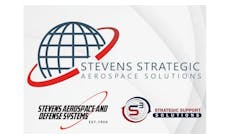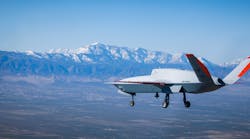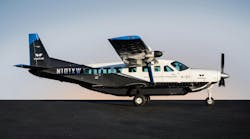Nov. 20--Amy Gowder's corner office at Kelly Aviation Center overlooks a vast jet-engine repair shop in transition.
Longtime defense contractor Lockheed Martin Corp. -- which partners with Rolls Royce at the facility -- has responded to dwindling military work by bringing in four commercial product lines over the last 13 months. And it's aggressively courting more.
As Kelly Aviation Center's vice president and general manager, Gowder is leading the effort as well as the integration with the Kelly Aviation Center Montreal, formerly a commercial maintenance, repair and overhaul (MRO) site operated by Canadian engine repair firm Aveos Fleet Performance.
Under her watch, the operation here, which also specializes in engine work and is located at Port San Antonio, has been considered one of industry's best-run plants. Her role has involved everything from trimming expenses to reconfiguring production lines to traveling the globe to tout Lockheed to fast-growing markets.
Her fast rise at Lockheed last year earned the 37-year-old a spot in Aviation Week & Space Technology magazine's "40 under 40" list.
"We're real proud of her," longtime Lockheed employee Joe Wilson said.
"It's interesting how life twists and turns," she said, reflecting on her path from a science- and math-loving kid to an executive in the complex world of aerospace.
Looking to the future for the U.S. aerospace industry, she is concerned that young Americans, and girls in particular, are shying away from math and science.
While she ended up in business, and completed a fellowship at MIT's Sloan School of Management in 2010, she said wouldn't trade her bioengineering degree for anything.
"You can definitely go a business route with an engineering degree, but those with a business degree can't necessarily get into technology," she said.
Her advice to those attending a National Science Teachers' Association conference was to give students strong training in the basics of experimentation and scientific method rather than worry about depth in a particular topic.
"You can give a broad exposure to different disciplines so that you interest the kids," she said.
Gowder attributes her own success to parental encouragement -- her father was electronics engineer who influenced her to explore math and science.
She spent junior-high summers at a girls' camp at Texas Woman's University, which exposed her to women in science as well as to like-minded girls her age "who weren't nerds."
When not taking classes at a magnet high school, she was volunteering at hospital emergency rooms and envisioning a future in medical research.
But by the time she graduated from Arizona State University, her interest had shifted from labs and medicine to technology in general.
She landed a position with Accenture in Phoenix, handling tech clients, including Lockheed, which hired her away in 2005 and named her Kelly vice president in April 2012.
She's proud of being able to blend the commercial sector know-how of the Montreal workforce with the "lean" best practices honed in San Antonio.
Kelly in San Antonio is already at a 50-50 mix of commercial and military work. The goal is 70 to 75 percent commercial.
The facility currently is doing MRO work on the CFM 56 engine that powers commercial Boeing 737s and Airbus 320s as well as the CF6-50 used in cargo planes flown by Fedex and UPS, and the CF6-80 used in wide-body aircraft.
"We've done a lot of cost reduction to be efficient and be competitive, and now it's about delivering on performance and proving we understand commercial just as well as we understand the military," she said.
She's glad to have come into a city that's developed a junior college pipeline to train students specifically for MRO jobs that are a niche for Lockheed and other tenants at Port San Antonio.
About 20 percent of Kelly's current workforce has come through that program, and of those, about 15 percent have gone on to pursue advanced degrees, she said.
Gowder is trying to duplicate the program with schools in Montreal.
"They get the basic sciences that they need," she said. "I mean, you're seeing a lot of college students with a general studies or a business degree struggling to find jobs right now, and those with a technical degree, whether it's a two-year or a four-year, have an advantage. They have skills that are more relevant to the workforce."
Copyright 2013 - San Antonio Express-News




